Review for Frightmare: The Best of British Collection
Terror-induced piano music floats through the Yates farmhouse like an alarm. As Dorothy sinks into her depths of depravity, music mirrors her perverse psychology -anticipating her next malevolent misdemeanour. Just stay away from pokers, power drills and pitchforks…
Reviewing films is a major bore and a regular chore. It never used to be like this. It was fun watching films, writing notes and producing a 'review'. It felt like an adult giving me an unlimited supply of Lego and saying, 'go and waste time doing what you enjoy'. Now I sit down for limitless hours and get confused with what colours go where, what shapes I should use to build something original (without it falling to pieces). Have I misplaced that sense of fun and naturalness and replaced it with sombre artificiality? It feels like I am repeating myself in an endless cycle of self-conscious drivel: contextualise the film, write about the story and only then can you move on to what you thought about it (and it has to be constructive and clever). Why not just write from the heart. After all - who gives a s*** what 'I' think? Why spend all this time constructing a dishonest review when I could be doing something else, something more creative and crazy?
When writing the screenplay for Frightmare, director Pete Walker asked co-writer David McGillivray, 'how are we going to shock them next?' Walker later admitted that, 'all I wanted to do was create a bit of mischief'. This cinematic mischief began with School for Sex (1968) and Cool It Carol! (1970). A year later, Walker twisted his exploitative camera towards the horror genre with Die Screaming, Marianne (with Susan George). He followed this with The Flesh and Blood Show (1972), Four Dimensions of Greta (1972), House of Whipcord (1974) and Frightmare (1974). Established critics chastised him for his hollow exploitative shock value. Not deterred he moved onto such colourful titles as House of Mortal Sin (1976), Schizo (1976), The Comeback (1978), Home Before Midnight (1979) and House of the Long Shadows (1983) with Vincent Price, Christopher Lee, Peter Cushing and Walker regular Sheila Keith.
Maybe I need a senseless distraction called respite. It is frustrating because writing about film is a passion. Getting the chance to watch a film and write about it is what I have always wanted to do. Now I sit amongst my notes and laptop with a blank expression and a blank document - feeling asphyxiated. Turning on the telly to watch the snooker gives me a timely distraction - a gasp of fresh air. That seems lazier to me. This is what I crave, a bit of downtime. When you do something 'all the time', it becomes a job (if you love it or not). I guess it is like asking your partner if you can take a breather. They ask you 'why' and then you feel guilty trying to explain yourself because you love them but you just want some space. Maybe I need to buy a bottle of wine, sit in the garden and enjoy the weather with a good book instead of spending all my time plugged into my laptop with this 'review every film you see' malarkey. I do not want a divorce my dearest, just some 'time out'. I love you but…
We engage with the story as we would a murder mystery. We pick up pieces of the plot like the sections of a jigsaw. Walker does not tell us much about the characters. He allows snippets of information to fall through as if drops of blood were falling from the ceiling - he plays a game of show, do not tell. This is a tale of mystery and suspense at its best. As Dorothy invites strangers into her farmhouse to read tarot cards, she tells her husband Edmund that 'lonely people come and go'. This manipulative woman kills these vulnerable people in order to extinguish her hunger…
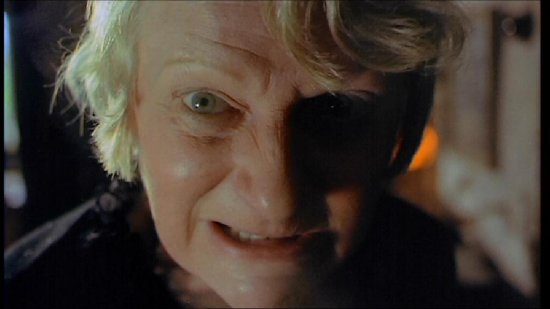
'Why do you feel this way?' a voice in my head asks, 'I do not know', I reply. I try to explain, sounding like Woody Allen, 'maybe it is a mid-life crisis. It is a strange predicament because I still love watching movies. They are my life. Maybe I just need to start watching them for the sake of watching them, not watching them with a pad and paper scribbling notes like an overzealous kid who wants to get an A+ for his school report.'
Verdict: Frightmare has a mysterious simplicity.It is also a traditional horror film with cringe-worthy off-screen violence in which imagination is more important than gore.
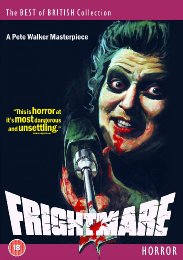
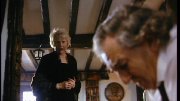
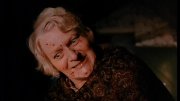
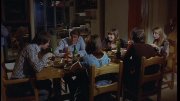
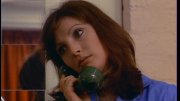
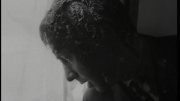
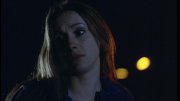

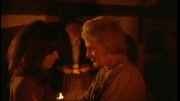
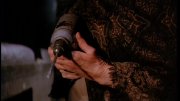
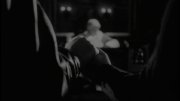
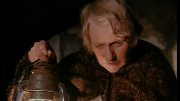
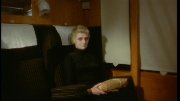

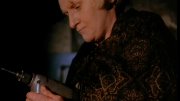



































Your Opinions and Comments
Be the first to post a comment!